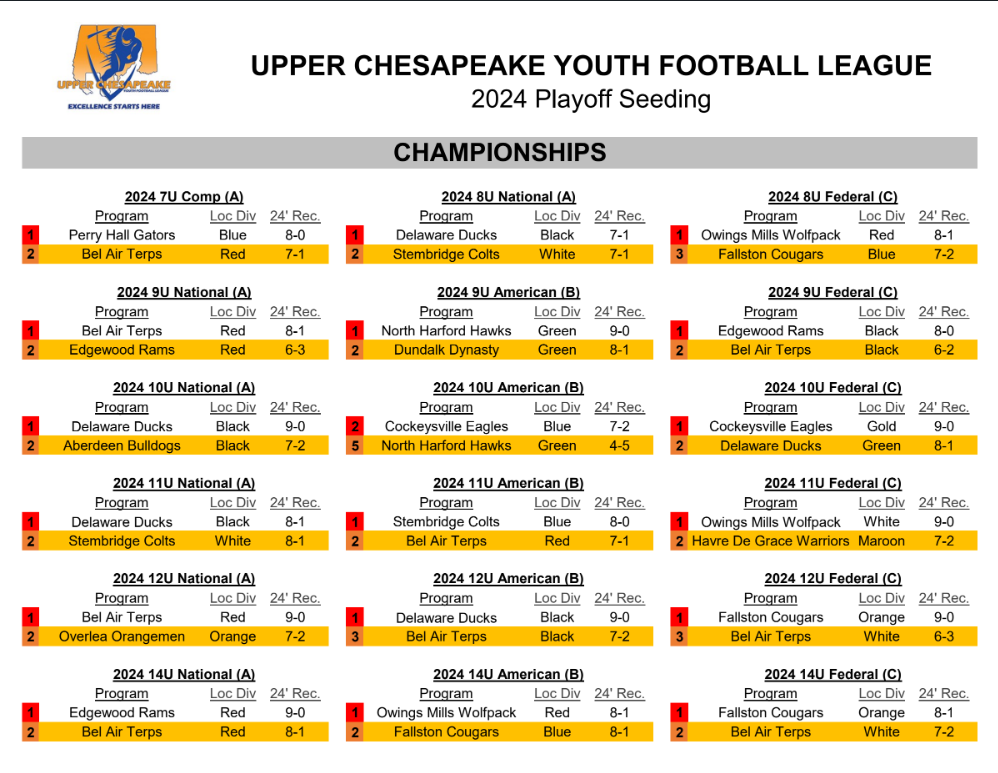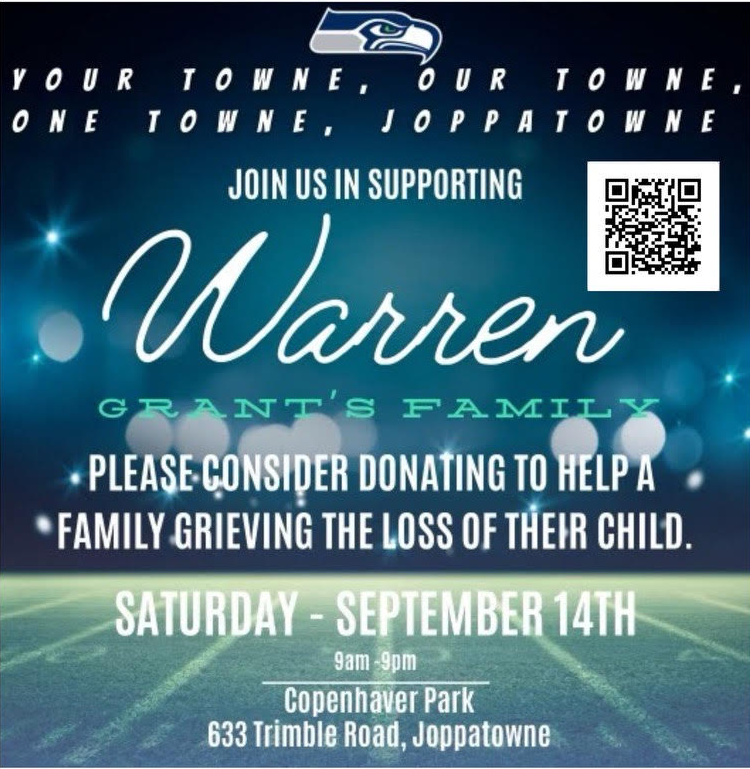Congrats to all those are still in it and made it to their Championship games.
Please see below seedings and Championship schedule.








 college athletes were asked to think back: "What is your worst memory from playing youth and high school sports?" Their overwhelming response: "The ride home from games with my parents." Those same athletes were also asked what their parents said that made them feel great after a game. Their overwhelming response: "I love to watch you play."
college athletes were asked to think back: "What is your worst memory from playing youth and high school sports?" Their overwhelming response: "The ride home from games with my parents." Those same athletes were also asked what their parents said that made them feel great after a game. Their overwhelming response: "I love to watch you play."
 starts. If your child has to miss a practice will they be benched during the next game? How will to coach ensure every players gets time on the field? What is their policy for pickup and drop-off at practice? Are there any rules you as the parent are expected to abide by? The more you know in advance about how the season should go the fewer surprises you'll be in for. If they written their policies up you can always pull those rules out should they not be following their own guidelines!
starts. If your child has to miss a practice will they be benched during the next game? How will to coach ensure every players gets time on the field? What is their policy for pickup and drop-off at practice? Are there any rules you as the parent are expected to abide by? The more you know in advance about how the season should go the fewer surprises you'll be in for. If they written their policies up you can always pull those rules out should they not be following their own guidelines! 
| Football is America’s favorite sport, and Heads Up Football is changing the way the game is taught at the youth and high school level. USA Football is asking football moms, dads and coaches to tell us why they believe in football and how the game has influenced their lives. Share your story, and we will consider it for inclusion in this series. Make sure to include your name, hometown and a photo with you and your favorite football people to accompany the feature. *** |
 5/29/2014 @9:13AM |



 It means a lot, it’s a blessing because I remember when people came and helped me as a young football player. It’s a part of the reason why I’ve been able to do some of the things that I did in my career. You’re never too young to learn fundamentals. It’s great when they see coaches and players that care about them as people.
It means a lot, it’s a blessing because I remember when people came and helped me as a young football player. It’s a part of the reason why I’ve been able to do some of the things that I did in my career. You’re never too young to learn fundamentals. It’s great when they see coaches and players that care about them as people. Each camper received a t-shirt provided by Under Armour. Ravens youth football specialist, Coach Tom gave the kids a very upbeat pep talk and encouraged them to “Play Like A Raven.” There are two more Ravens clinics coming up this month. Parents should register their children for them as soon as possible by clicking the following link: Ravens ClinicsVictor Santiago from Aberdeen Maryland told Pro Player Insiders that he had a great time at the camp. “My favorite thing was coming here and having fun. I learned to keep a good base in the offensive line drills. It was great to learn about values like hard work.” The camp was a success as many of the young athletes left with a smile on their face. - See more at:“It means a lot, it’s a blessing because I remember when people came and helped me as a young football player. It’s a part of the reason why I’ve been able to do some of the things that I did in my career. You’re never too young to learn fundamentals. It’s great when they see coaches and players that care about them as people. To me coaching is a way to continue to serve.”
Each camper received a t-shirt provided by Under Armour. Ravens youth football specialist, Coach Tom gave the kids a very upbeat pep talk and encouraged them to “Play Like A Raven.” There are two more Ravens clinics coming up this month. Parents should register their children for them as soon as possible by clicking the following link: Ravens ClinicsVictor Santiago from Aberdeen Maryland told Pro Player Insiders that he had a great time at the camp. “My favorite thing was coming here and having fun. I learned to keep a good base in the offensive line drills. It was great to learn about values like hard work.” The camp was a success as many of the young athletes left with a smile on their face.“It means a lot, it’s a blessing because I remember when people came and helped me as a young football player. It’s a part of the reason why I’ve been able to do some of the things that I did in my career. You’re never too young to learn fundamentals. It’s great when they see coaches and players that care about them as people. To me coaching is a way to continue to serve.”